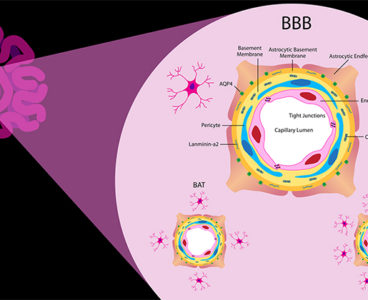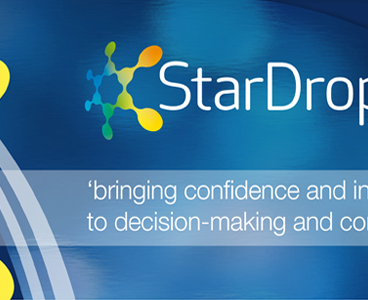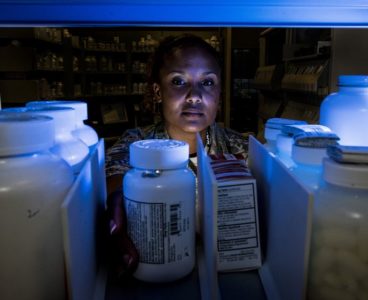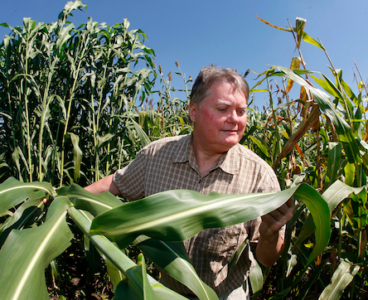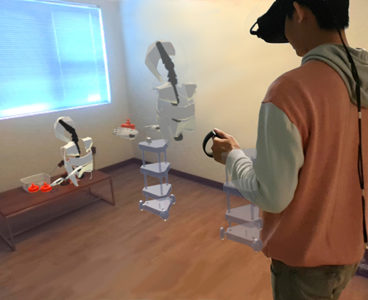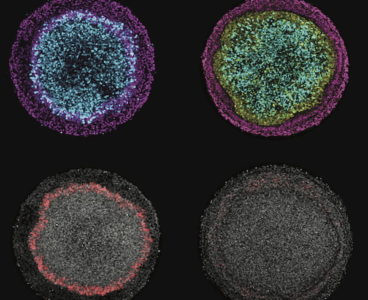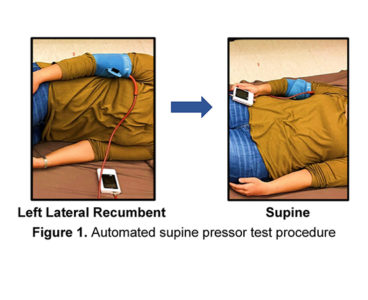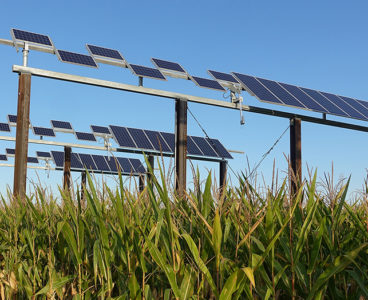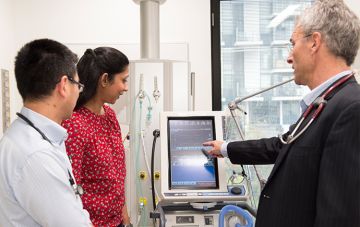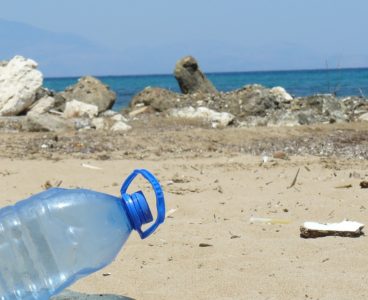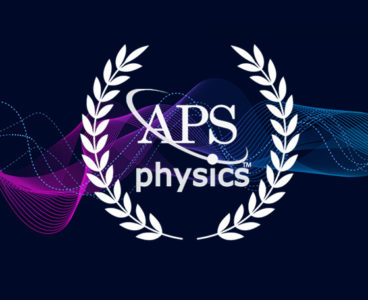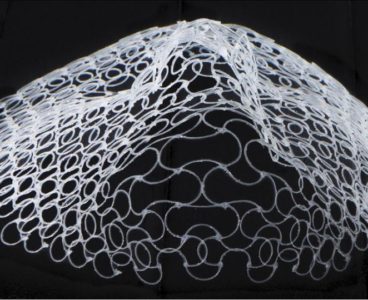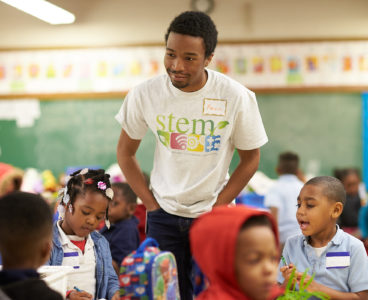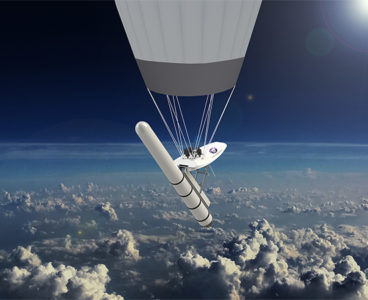Controllis, a supplier of hybrid power systems for mobile network operators (MNOs) and tower companies, has leveraged its experience to develop a carbon neutral site power system to help support a net zero emissions economy, established by the Paris Agreement. The new system, Controllis Zero will allow off-grid and poor-grid sites to produce cleaner energy…
Getting cancer drugs to the brain is difficult – but a new ‘road map’ might make it easier
The human brain has some remarkable capabilities – including the ability to block cancer drugs from effectively reaching cancer cells in the brain. The greatest obstacle when it comes to treating cancer that has spread to the brain is the blood-brain barrier, the brain’s natural defense mechanism that is a collection of blood vessels that…
New aviation program, flight simulator address future pilot shortage concerns
The approaching holiday travel season brings concerns of what a pilot shortage could mean for the annual overflowing flight schedules. That shortage could soon could be alleviated. Purdue (University) Polytechnic Institute has introduced a Degree in 3 program. It is intended to get more flight students properly trained and in the air a year sooner.…
Study points to new weapon in fight against lethal fungi
Candida albicans, a commonly found microbe, can turn deadly when it colonizes on devices such as catheters implanted in the human body. While commonly found in healthy people, this microbe can become a serious problem for those who are seriously ill or immune-suppressed. The microbe forms a biofilm when it colonizes using, for example, a catheter…
New Monash research to boost performance of Australian cyclists
With the 2020 Tokyo Olympic Games drawing nearer, advanced numerical and experimental studies are being conducted to provide Australia’s most promising athletes with a competitive advantage. The studies are helping Australia’s leading sports scientists and performance coaches to shave vital seconds off their athletes’ times in the velodrome. Studies published in the Journal of Sports Engineering…
Owlstone Medical to Contribute Breath Biopsy to 3TR, the Largest-ever IMI2 Immunology Project to Improve Disease Management Across Seven Immune-Mediated Diseases
Owlstone Medical has joined 3TR, a large-scale public-private research initiative that aims to provide new insights into the mechanisms of response and non-response to treatment within and across seven different immune-mediated diseases. Owlstone Medical will receive funds from the project to provide Breath Biopsy Collection Stations and Kits for the collection of breath samples, and…
Optibrium Announce the Release of StarDrop™ 6.6
Optibrium™, a developer of software for drug discovery, today announced the introduction of StarDrop™ 6.6, the latest version of this comprehensive software platform for small molecule design, optimisation and data analysis. The enhanced software will introduce new in silico modelling approaches, ensuring scientists can easily link two- and three-dimensional structural information, identify potential liabilities and…
Study finds doctor-pharmacist partnership significantly reduces patient harm
Medication errors are among the most common incidents reported in hospitals, often occurring at hospital admission, with a new study led by Monash University and Alfred Health researchers evaluating a collaborative model to reduce medication errors and length of hospital stay. The study of 8648 patients found that having a partnered pharmacist medication charting* (PPMC)…
Scientists develop efficient methods to turn woody biomass into fuels
Increasing production of second-generation biofuels – those made from non-food biomass such as switchgrass, biomass sorghum, and corn stover – would lessen our reliance on burning fossil fuels, which contributes to climate change. Several barriers have prevented the efficient conversion of that biomass. Lignin, a complex compound in cell walls, blocks access to plant carbohydrates…
Watch your ghost teach a robot how to tag-team
When Tesla failed to hit weekly production targets in the first quarter of 2018, chief executive Elon Musk blamed it on “excessive automation.” The robots were slowing things down and “underrated” humans could do better. Musk resorted to pulling all-nighters and sleeping at the factory so that customer deliveries wouldn’t be further delayed. For those…
Unique Rice platform helps bioscientists learn how ectoderm cells begin to differentiate
During embryonic development, the entire nervous system, the skin and the sensory organs emerge from a single sheet of cells known as the ectoderm. While there have been extensive studies of how this sheet forms all these derivatives, it hasn’t been possible to study the process in humans – until now. Rice bioscientist Aryeh Warmflash, graduate student…
Antarctic ice cliffs may not contribute to sea-level rise as much as predicted
Antarctica’s ice sheet spans close to twice the area of the contiguous United States, and its land boundary is buttressed by massive, floating ice shelves extending hundreds of miles out over the frigid waters of the Southern Ocean. When these ice shelves collapse into the ocean, they expose towering cliffs of ice along Antarctica’s edge.…
Pregnant women may soon be able to detect their own risk of preeclampsia with a smartphone
Roughly 15% of premature births in the U.S. happen due to a pregnancy complication caused by high blood pressure, called preeclampsia. While sometimes symptoms dissipate after the mother gives birth, preeclampsia can lead to permanent damage to the kidneys or death. Purdue University researchers and colleagues, including Drs. David Reuter from Seattle Children’s Hospital and David Haas…
People are complicated, but their spit is ‘shockingly complex’
Our physical and mental state influences our eating habits. But scientists are still trying to understand how one biological process affects how we eat. Warning: Learning more could kill your appetite. “For flavor, spit and nasal mucus are the media in which all of those reactions occur, and that’s disgusting. But at the same time,…
Enclosures for Lab Automation and Robotics
Enclosures are designed to isolate liquid handling workstations, HPLC equipment, sample weighing, high throughput screening, powders handling and other lab automated processes by providing exhaust air systems or HEPA filtered clean workstations. Enclosures are built to protect personnel from hazardous fumes, and processes from Lab contamination. Utilizing a flexible, modular design, HEMCO Enclosures are engineered…
Local sunshine meets local needs with global impact; key is cogenerating electricity alongside farming
A team of engineers, agronomists and economists at Purdue University’s Center for Sustainable Food, Energy and Water Systems (SFEWS), supported by the National Science Foundation, are developing novel photovoltaic (PV) module designs for use on agricultural land to cogenerate electricity while growing food crops. The enabling insights from their modeling results were just published in…
Research findings may change oxygen use in ICUs across the globe
A trial by researchers at Monash University could change how oxygen is administered to millions of people in intensive care units across the world. The trial found ICU patients are being given unnecessary levels of oxygen that make no difference to their recovery, and in some specific groups less oxygen may actually improve recovery…
Sunlight degrades polystyrene much faster than expected
Polystyrene persists in the environment for millennia, according to some international governmental agencies. This estimate is based on the amount of time required for microbes to break down the plastic. But now researchers have challenged this common assumption with the finding that sunlight can break down polystyrene over a much shorter time scale, from decades…
Two Brookhaven Lab Scientists Named Fellows of the American Physical Society
The American Physical Society (APS) has elected two scientists from the U.S. Department of Energy’s (DOE) Brookhaven National Laboratory as 2019 APS fellows. With more than 55,000 members from academia, government, and industry, APS seeks to advance and share physics knowledge through research journals, scientific meetings, and activities in education, outreach, and advocacy. Each year,…
New Framework Makes AI Systems More Transparent Without Sacrificing Performance
Researchers are proposing a framework that would allow users to understand the rationale behind artificial intelligence (AI) decisions. The work is significant, given the push to move away from “black box” AI systems – particularly in sectors, such as military and law enforcement, where there is a need to justify decisions. “One thing that sets…
Shape-shifting structures take the form of a face, antenna
What would it take to transform a flat sheet into a human face? How would the sheet need to grow and shrink to form eyes that are concave into the face and a convex nose and chin that protrude? How to encode and release complex curves in shape-shifting structures is at the center of research…
Improving Crops and Inspiring the Next Generation of Scientists
“When I found out, I took off running across the lab.” That’s how Kevin Cox, a postdoctoral associate at the Danforth Center, describes the moment he found out that he had received the Hanna H. Gray Fellowship from the Howard Hughes Medical Institute. “It was definitely emotional. I had applied to this same fellowship a…
Nobel Prize in Chemistry Goes to John Goodenough of The University of Texas at Austin
John B. Goodenough, professor in the Cockrell School of Engineering at The University of Texas at Austin, has been awarded the 2019 Nobel Prize in chemistry — jointly with Stanley Whittingham of the State University of New York at Binghamton and Akira Yoshino of Meijo University — “for the development of lithium-ion batteries.” In the…
Humans are Officially Greening the Earth…is that a good thing?
Chi Chen, a Boston University graduate researcher, and Ranga Myneni, a BU professor of earth and environment, are the lead and senior authors of a new paper in Nature Sustainability that reveals how humans are influencing the Earth’s plant and tree cover. On the surface, it may look like a no-brainer that “greening” of the planet would be…
Technology to use hot air balloons for rocket launches competes in a startup battlefield
Leo Aerospace has taken to the technology battlefield to receive worldwide attention for its technology, Members of the Leo team took the stage in early October at TechCrunch’s Disrupt SF Startup Battlefield in California. Michael Hepfer, Dane Rudy, Drew Sherman, Bryce Prior and Abishek Murali started Leo while students in Purdue’s College of Engineering. The event is an…


